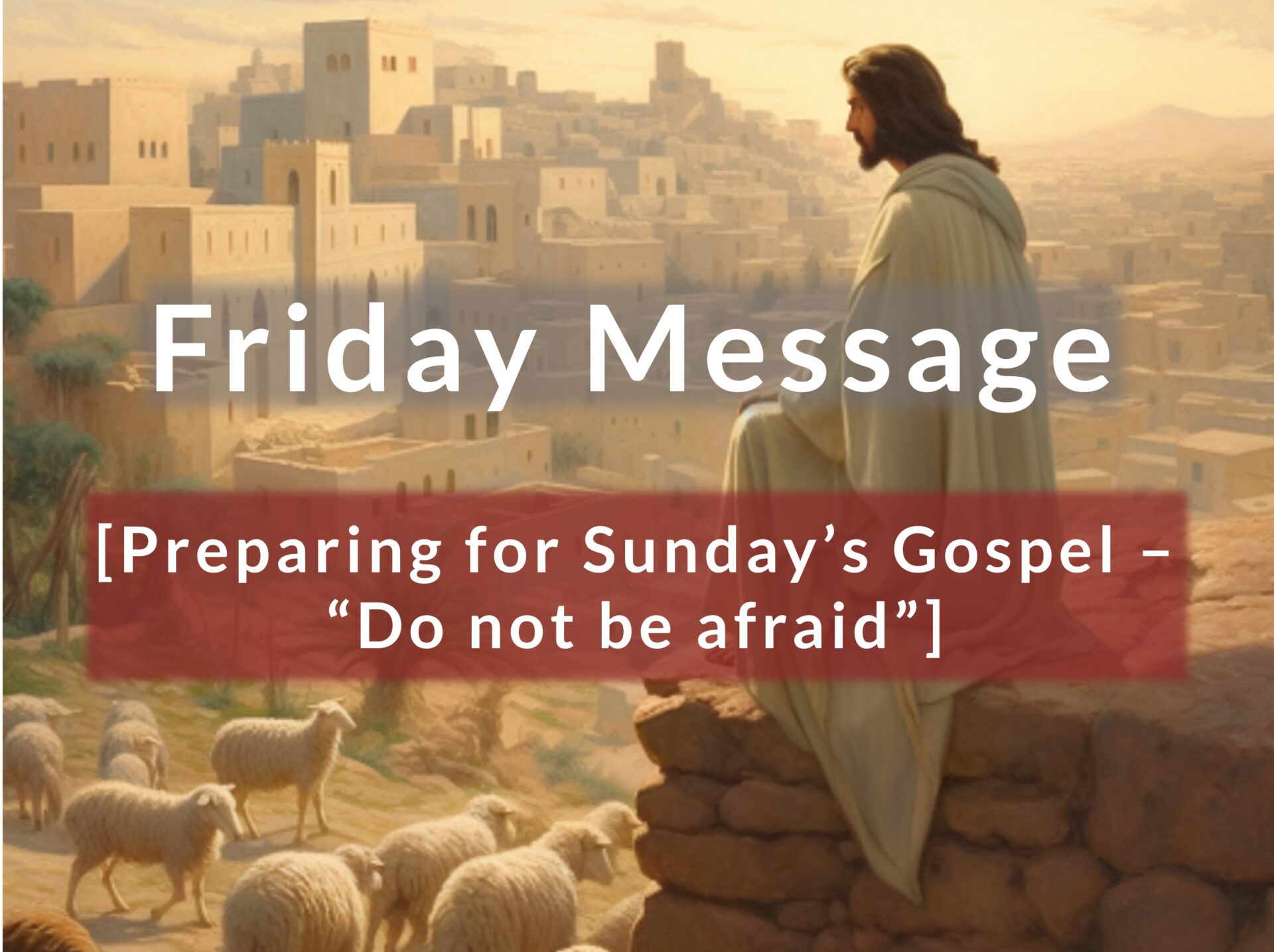
This Sunday’s Gospel reading (Mt 10:26-33) addresses fear, with Jesus telling His Apostles, “Do not be afraid” (our video for this week will come out tomorrow…).
But there’s a very important context to why Jesus makes that statement.
First, a little background on fear, a la St. Thomas Aquinas and friends.
Fear is the response of our lower nature (our five senses and “animal brain”) that repels us from real or perceived evil. Two related aspects to what we perceive as evil (often different sides of the same coin):
- Privation of a good – e.g. if I do the right thing, I may lose my job and its benefits
- Suffering an evil – e.g. if I lose my job I will suffer the costs of unemployment
Fear can be good. Scripture (and St. Augustine among others) calls this “chaste” fear. As in, “Fear of the Lord is chaste.” Chaste fear is “pure” – it is an authentic fear that warns us of danger and keeps us from being rash. Chaste fear engages the virtues and gifts of counsel and courage. For example, Steve is cautious about working on ladders. He has a healthy fear of falling off one (as is said, it’s not the fall, it’s the landing).
Having a healthy fear of ladders engages counsel on the matter (making sure the ladder is properly positioned, and supported, etc) and then mustering the courage to confidently proceed with the work to be done.
But more often, our fear is disordered. Aquinas refers to this as “unnatural” fear. This is fear that is either not based in reality (like superstitious fears), or useless fear about things that are beyond our control.
This brings us to Sunday’s Gospel reading.
The fear that Jesus is warning the Apostles about, is fear of the persecution of the world.
Of all the useless fears that we face in life, the majority are the work product of the world:
- Fear of silence in such a noisy world
- Fear of financial collapse
- Fear of being canceled
- Fear of the globalists inventing a new phlemdemic (if we use the real word our emails might get blocked)
- Fear of climate Armageddon
- Fear of over-population
- And on and on
Many of these types of fears are ginned up by pseudo-science, and all of them are of such a scale that they play out over a long time and completely beyond our control – so they create an ever-present backdrop of fear (or “free floating anxiety”).
There are many well-meaning psychologists and coaches who offer “hacks” to manage fear and anxiety. And many of those hacks might work well for simple, short-lived fears (like the fear of getting on an airplane). But the deep, existential fears that the world dishes up will not be dampened by a life-hack. They will only be quenched in the fire of a deep, meaningful relationship.
That is why Jesus immediately follows His “do not be afraid” directive, with a reminder of how much the Apostles are loved by their Heavenly Father.
On a different occasion, Jesus gives us the single best example of how to conquer our fears – and that will be our topic in Monday’s message.
Until then, Sabbath blessings –
Steve and Karen Smith
